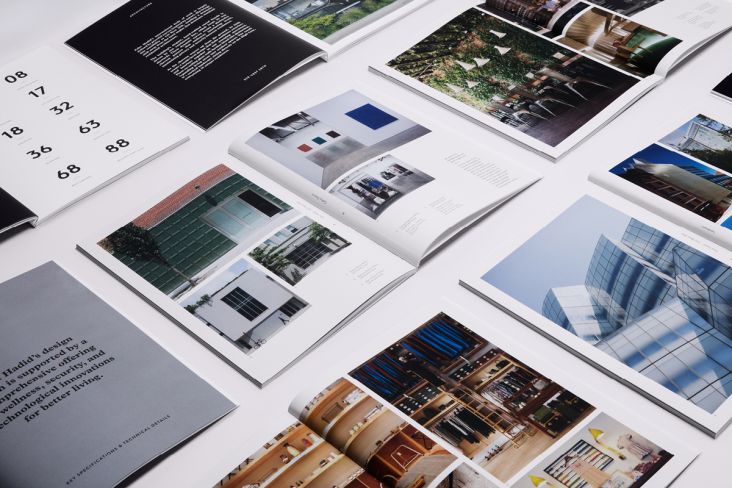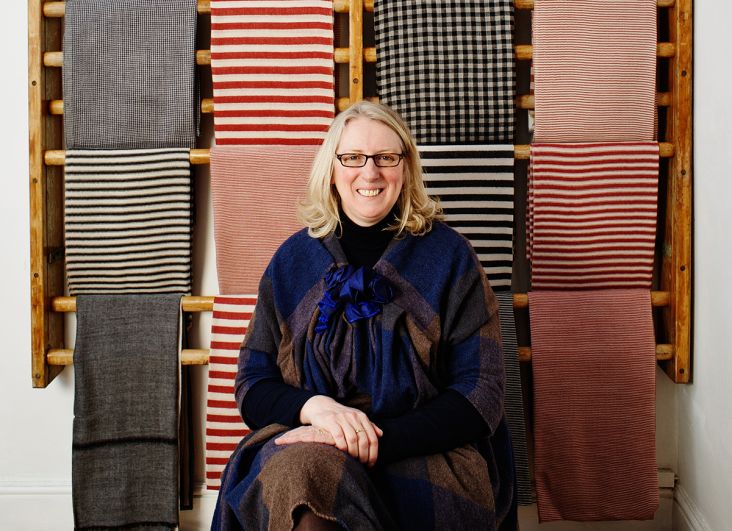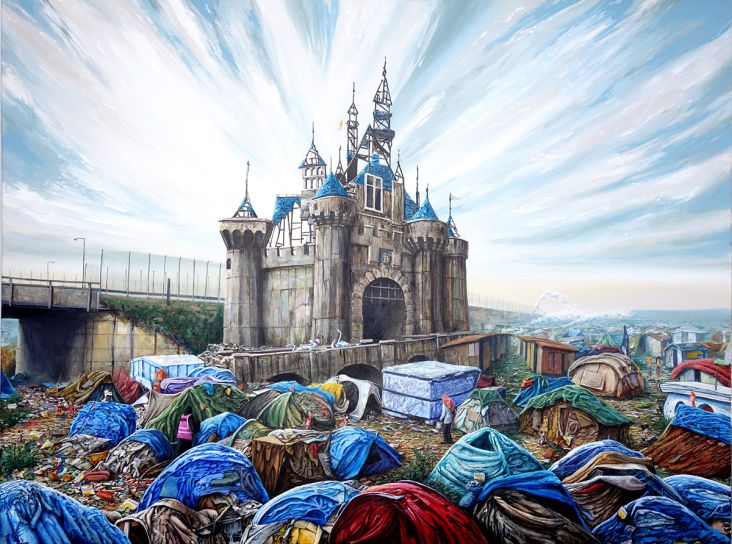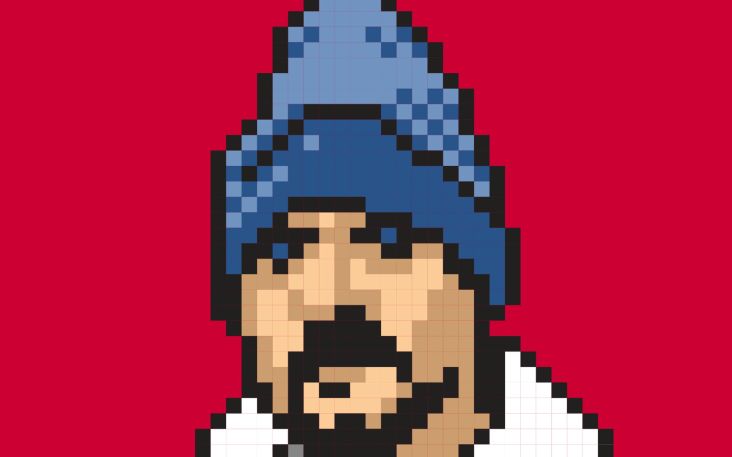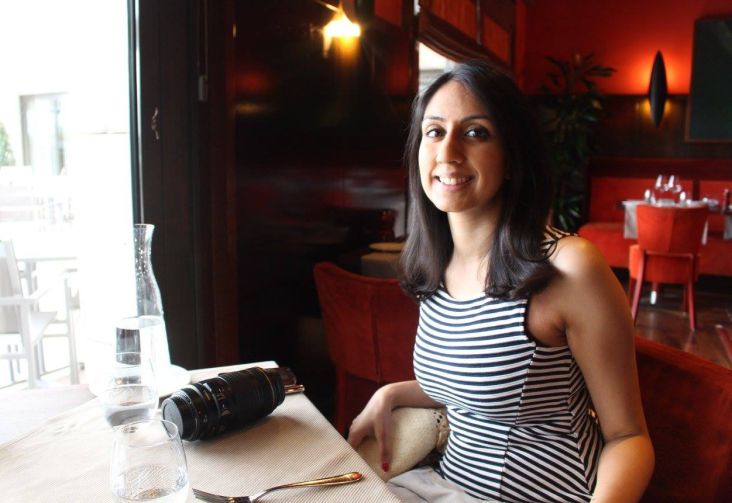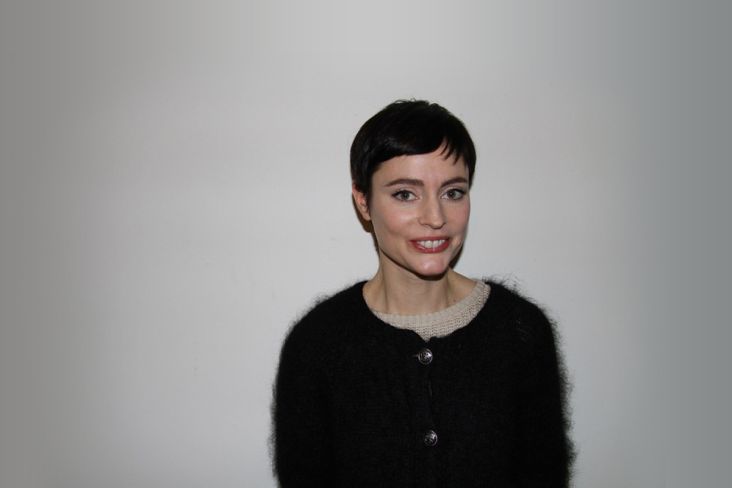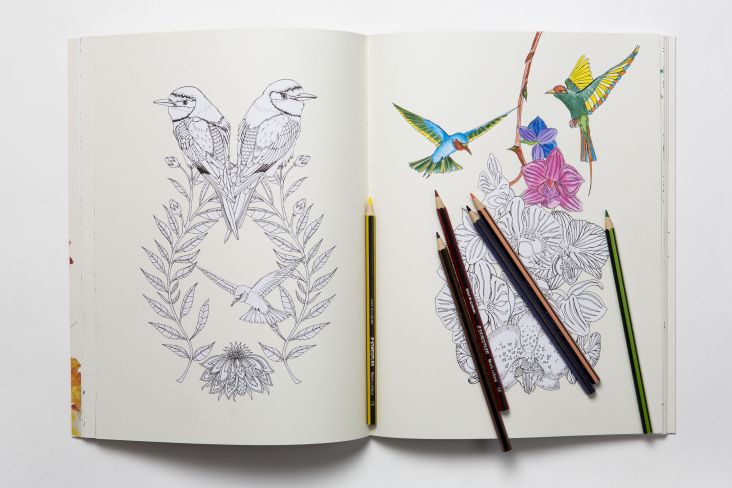Aaron Draplin on hard work, keeping things small and fun, and his honest design process
Aaron Draplin should need no introduction. The man behind developing the identity of Esquire, Ford Motors, The Obama Administration and Burton Snowboards – he's one of the new school of influential graphic designers who combine the power of design, social media, entrepreneurship, and DIY aesthetic to create a successful business and way of life.
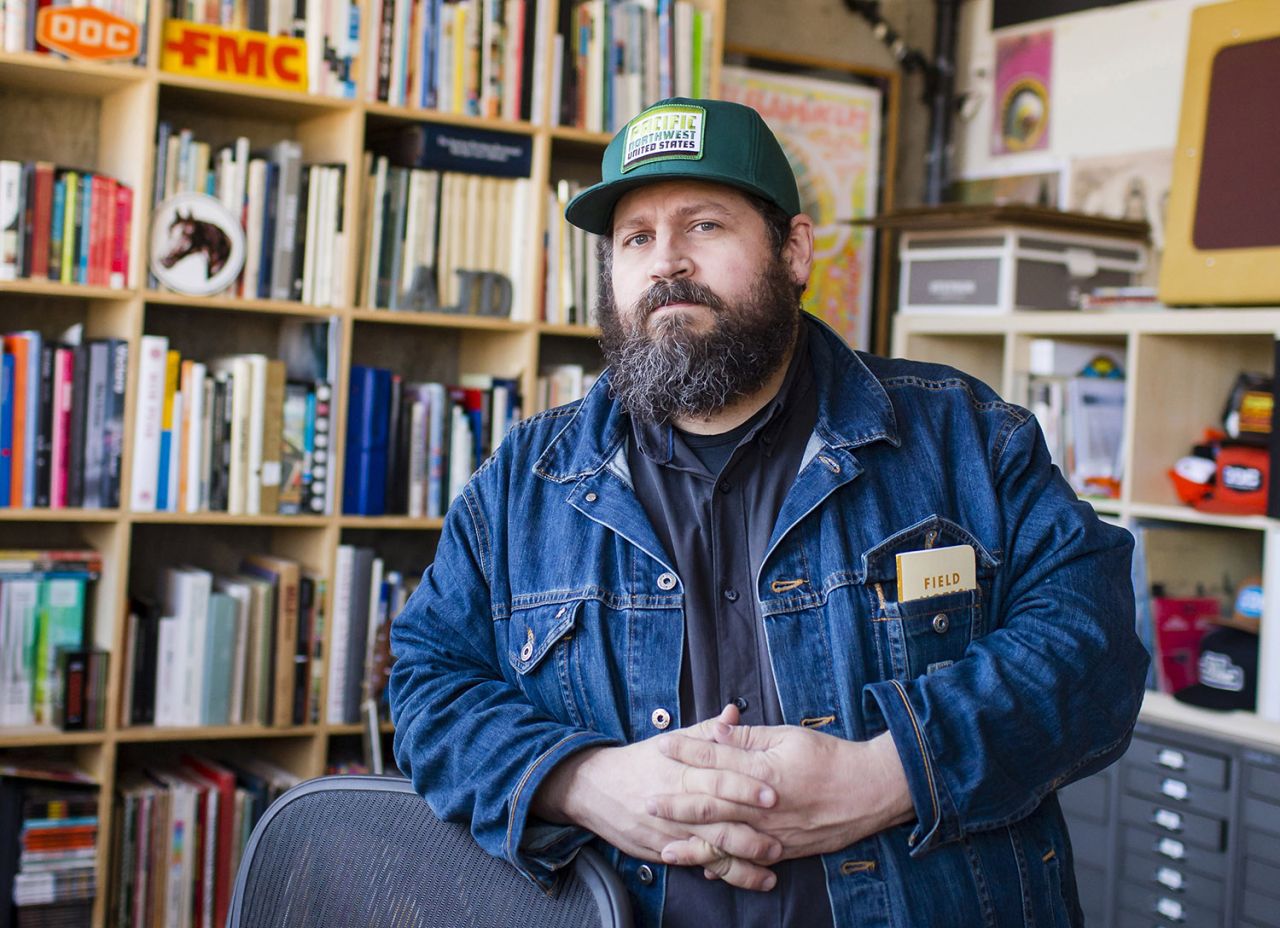
Based in Portland, Oregon, he's just launched a new book – Draplin Design Co. Pretty Much Everything – a mid-career survey of work, case studies, inspiration, road stories, lists, maps, how-to's, and advice. It includes examples of his work via his own studio Draplin Design Co. – posters, record covers, logos – and presents the process behind his design with projects like Field Notes and the Things We Love “State” Posters.
Renowned also for being a fun, larger than life character – and a popular regular on the world speaking circuit for some of the biggest events in the creative industries – we happily spoke to Aaron about his career, his new book and what advice he can give to aspiring designers...
How did you get to where you are now?
I took Highways 80, 90, 94 and 84 all the way to Portland. (That’s a funny answer. You should be laughing right now.) I grew up in Traverse City, Michigan, graduated high school and then did two years at Northwestern Michigan Community College, earning an Associates Degree. Then at 19, I hit the road west to be a snowboarder with my asshole buddies. Did that for five winters, spending summers working in Alaska.
I went back to school in 1998 to the Minneapolis College of Art & Design, earning my Bachelors in Graphic Design. That wrapped in 2000. Took a job down in California at a snowboarding magazine. Did that for two years in that Orange County hellhole, heading back to Portland in 2002 to take a job with the Cinco Design Office. Worked there for two years, going out on my own in 2004. Solo! And man, it’s been an incredible ride! I’ll never go back.
You've achieved so much in such a small amount of time. What's your secret? How do you fit it all in?
It’s been a good fifteen years or so. My secret? I work hard. And, I do this stuff for fun, way more than for a buck. When you ask how I fit it all in, I suspect you ask how I fit design into my life? But I have to say, I kind of flip it around the other way. How do I fit life into my designing? That’s the challenge. I work way more than I should, I’m betting. And frankly, that’s how I got ahead.
I understand very clearly these opportunities are fleeting and go away in a blink of an eye. So I’ve taken advantage of all the gigs, big and small, good loot and for free… in the pursuit of building a life I could be comfortable with. So far, so good!
You mentioned you worked in a studio before you went freelance. What was that like? And what drove you to go solo?
It was cool because it’s a good environment to learn in. Plus, they protect you with account managers and all that. But, it quickly became claustrophobic. I’d go home from a long day and work on my own shit, to oddly decompress. From the big leagues, to the little leagues. Each night. And the little leagues? I could make better loot there. So I split.
Does your snowboarding background still affect the style of your work?
Of course. When I started snowboarding, it was daring, and a climate where skiers ruled the hill. And we got messed with. But we made our way, gear, tricks and, my favourite, our own attitude. And all these years later? Those turd skiers have finally caught on to what we showed them. Ha! This has worked its way into my work in many ways. It taught me to be fearless, dumb and to go for it if it felt right.
Today, you have a successful design business and all these interesting side ventures, like Field Notes – what's that feel like?
It feels warm and paper-ish. Occasional paper cuts! (Sorry, I keep answering this literally! Laugh it up.) Field Notes is growing and growing. And I’m forever thankful to Jim Coudal for his vision and guidance. Without all the folks in Chicago, that thing would’ve died a decade ago. It feels awesome to have invented our own little path. And the coolest part? Our little books are affordable and designed precisely how we want them to be. No compromises. So proud of those books. And damn, thanks to everyone who uses them! New stuff coming this summer!
You also do 40+ talks every year – what is it about speaking that you enjoy so much?
I like leaving Portland, working on planes there, sharing my mess, selling merch, meeting people, hopping back on the plane, working all the way back and coming home to Portland. I like to get away and take a little break. I’m pretty productive with my time on the road, too. I work in the hotel each night, cinching things up. It’s work, but it’s mellow. Mainly, I just like seeing new places and new people. I like sharing my mess with them! Come see a show this fall, you animals!
Any notable appearances you can mention?
The big ones always come to mind. The HOW conferences bring giant crowds. Like 2,000 people! My TEDxPortland talk had 3,500 in the crowd! That’s been the biggest. I still get nervous thinking about that one. So scary. All those people, eyeballing me! But those are the big ones. I remember all the tiny ones too. One time in Des Moines, with 25 people there. And it was awesome! I’ll go anywhere. Try me.
Have there ever been any strange requests in your line of work? Tell us more…
Tattoo requests are always a little weird. And logos for weed-related ventures. Or vape shit. If I squirm thinking about a project getting going, that’s enough for me to bow out gently. I mean, c’mon, vaping? So goofy.
Was there a point in your career when you realised you'd 'made it’?
That’s still debatable. But there’s been some bright spots: Paying off my house was a big one. Tripling my wage, my first year on my own, too. Or being able to take care of my mom and dad with this stuff. That sort of stuff. And the best part? I did it working with friends. So proud of all this shit.
Any projects you're especially proud of? Tell us more…
Funny enough, it’s always the underdogs. It’s natural for us to take our biggest projects and shine the most light on them. I do it a little differently. I like to show the long shots…the sketchy things…and how my design brought something to life, or rescued it, or made it a player amongst bigger things. I’m way more proud of those instances. Mainly because that’s not how it’s supposed to go. I like messing with that.
Would you say you're creatively satisfied?
Affirmative! Short answer, but yeah, I have worked hard to make a life in this stuff, and always feel nice and full with it.
What frustrates you about the design industry?
Not that much. Of course, when I indulge and think about it, it’s chumpy stuff like design trends. So funny, and kind of predictable. Oh, and trolls, who would rather leave a shitty comment instead of taking the time to actually do some good work. Those little fuckers. But you see, I don’t really consider myself part of the design industry, per se. I operate outside of it. Or at least, that’s what I tell myself.
Work hard, and love it. Be thankful we get to spend our lives being creative!
Someone comes to you for a new logo – what's your process?
First we get to know each other on a couple calls or a visit to the shop. I grill 'em with questions and we simply discuss the project, the challenges and the goals they want to hit. Most importantly, I try to show them that I am excited as hell to help out, and they are in good hands. Positive start!
I begin with sketching, taking notes, thinking, making lists and then taking the sketches into Illustrator, and fine-tuning them digitally. Then, building the pieces into a presentation for the client. After you get feedback, you do it again. And you go back and forth a handful of times until something awesome pops out. It takes work, diligence, and good communication. And that’s how I’ve done it all these years.
What regular challenges do you come across when designing logos and how do you overcome them?
The same old stuff everyone deals with. A client will alter things, or, get stuck on something, or, try to tell you what they want and be convoluted. I overcome this stuff by being on the ball, showing lots of options and being open to their feedback, and, where it’ll take me. That’s the magic of this stuff. Listening, reacting, making something new… and surprising the client, and, yourself. That’s the best!
How much do you fight clients, if at all, to give them what you want?
I don’t. That’s not my job, or anyone's. Have a little respect for the process, and be professional. I know that sounds weird out of a guy who’s known for shooting his mouth off, but hey, when I am on the job, I work. And hold people to it. I remember this couple of things, at all times: THEY HIRED ME. GET THE JOB DONE. MAKE THEM LOVE IT!
So you have a new book out – Pretty Much Everything: what can we expect?
A mid-career survey showing everything we could pack in. Not just the big stuff… all the tiny, crusty stuff too. Very proud of that. Everyone needs to buy this book. It almost killed me, making this thing. Have a little pity and procure yourself a copy, and dig into a life of vectors, creative sidestepping, cosmic ramblings, rescue efforts, working with your buddies and generally going ape-shit. It’s all in there!
What's the creative scene like in Portland? Is it a good place to be based?
It’s exploding. Lots of new agencies and people flocking here to fill the places up. But that’s all big league shit. I operate down in the muck and aim to keep it that way. Even as town changes, I’m not taking that bait for the big stuff. It is a good place to be based. Clean, quiet, progressive. But of course, it’s changing, or, has changed already. Rent is going through the roof and assholes are driving too fast. Go back to California, you pukes.
You touch on avoiding the big leagues - why do you deliberately stay small as a design business?
It’s more comfortable. But honestly, I squirm trying to answer this. I’ll put it this way: I don’t want to be woken up, or, have some alarm going off in my ear each morning, and then having to drag myself to some job I sorta like. You know what I mean? The stuff I work on? I can’t get down to the shop fast enough. I sleep until the world wakes me up.
Then I whip down to the shop and pack it all in. All those big jobs I’ve had? You had to be up so early, hating life. Like, pretending to like it. And you can feel people putting on an act. Just not for me. I could play the game, but it felt fake and forced. So, I’ll stay small and let the universe wake me up and not some account manager with a little too much pep in their step. And barely make rent each month. Just kidding!
There's a culture to encourage us to grow, grow, grow in the creative industries. Why do you think people still associate 'big' with success?
I don’t really know how to answer this one. I mean, here’s what I know. Bigger isn’t always better. 'Bigger' in my world? It means more people weighing in. More emails. More meetings. More bullshit. More time being around people you can’t stand. I know that sounds terrible, but I’ve been in enough of those situations, mad at myself for not having the guts to bow out. And I took it on the chin, smiled and finished the job. Like a good worker bee.
Working with a friends, or some band? We’d look at each other in some moment of high tension and just laugh and go, 'Really? This is how it is! Fuck it, let’s take a break and go hit the record store. Let’s go nap. Let’s quit for the day and hit it hard tomorrow morning.' Stuff like that.
You want the big job? Go get it. You want the big client? Go after them. I’ve tasted it a couple times. And like anyone, I take the bait here and there. Sometimes you get the sense it’s something big, but with the right folks guiding a smaller component of it. And then I bite. And do the job ferociously.
So when you talk of crafting a business that works well for yourself – what does that mean and how have you achieved that?
Just having the sense to know what you are good at, and what is the right fit for your skill set. Sure, it’s fun to learn new stuff. But it’s also fun to make a living doing something you are comfortable with, you know? I know what I’m capable of.
Have you ever been tempted to grow, take on staff and go for it? What's stopped you?
Sure, smarter people than myself are always on my case, tempting me with the age-old, 'Dude, let’s get you couple kids to do the dirty work for you' thing. But I have to say, the first time I had to teach a kid something I knew from muscle memory, and then, still have to re-do it in the end? Such a bummer. Just wasn’t down with it.
And whoever said the crusty stuff isn’t fun? You know who? The smart turds who are always going for the gold. Gold, silver, bronze? I mean, why are we forced to measure success with 'cool' or 'the best part of the job' or 'big time money'. I can sleep at night, and that’s sort of enough for me.
What three pieces of advice would you share with aspiring designers looking to follow in your footsteps?
One – don’t mess around with taxes. Pay the damn things and accept the fact that for every buck you make, you better have 35 cents ratholed away to pay later on. Ugh.
Two – keep it fun. There will be more than enough turds who are in the business of making things 'un-fun'.
And three – work hard, and love it. Be thankful we get to spend our lives being creative!
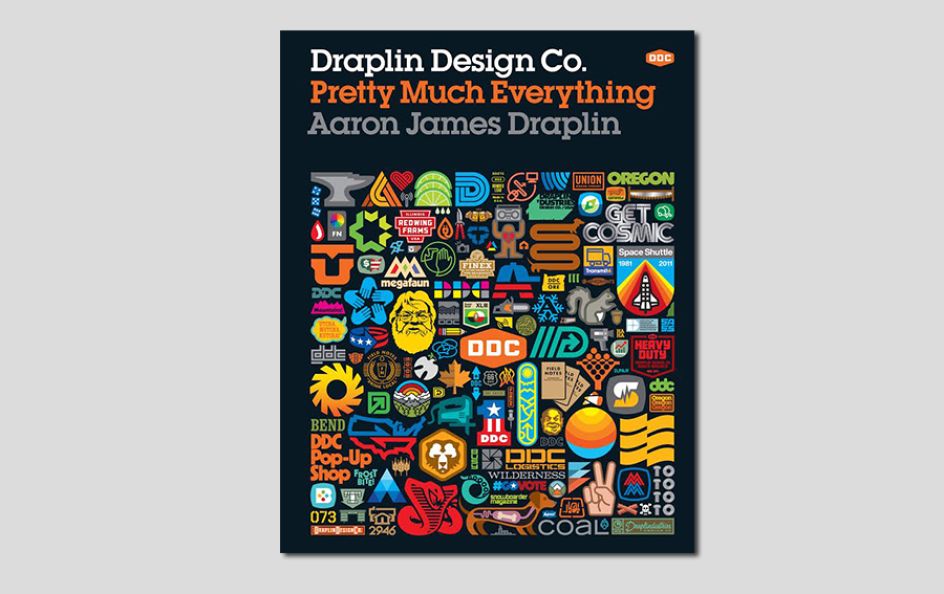
Enjoyed the interview? Check out more of Draplin's work via his website at www.draplin.com. To get your hands on Draplin's new book Draplin Design Co. published by Abrams, you can order online via Abrams & Chronicle Books. Make sure you also follow him on Twitter @Draplin.
Main Image: Copyright @ Leah Nash

















